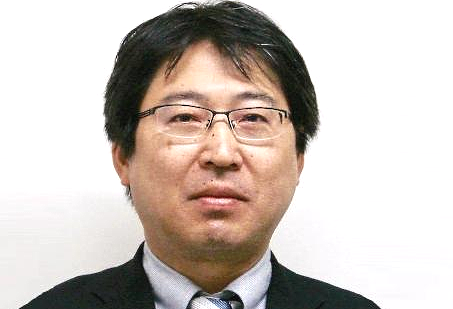
By Shin Kawashima
On March 5, 2020, the Japanese government officially announced the postponement of Chairman Xi Jinping's visit to Japan.
The Chinese Government also confirmed the postponement at a press conference held on the same day by the Ministry of Foreign Affairs, saying, "Both sides have agreed on the need to ensure that Chairman Xi's state visit takes place at the most appropriate time and in the most appropriate environment and atmosphere, and that it is a complete success. As a result of discussions, both sides will remain in close communication regarding the timing of the visit."
It is extremely interesting that the Japanese Government stopped issuing visas for Japan temporarily in China on the same day and decided to cancel visas already issued, as well as to quarantine visitors from China for two weeks. With Chinese passport holders not allowed to visit Japan without visas, this means that Chinese people's visits to Japan from China are now almost completely disallowed. The measures will be implemented from March 9 until March 31.
Previously, the Japanese government only restricted the entry of people who had spent time in Hubei Province and part of Zhejiang Province. It has now decided to expand this restriction right across China.
The announcement of this decision, which was made on the same day as the postponement of Chairman Xi's visit to Japan, clearly indicates that Japan had been taking the Chinese position into consideration and was unable to restrict the entry of Chinese people in anticipation of Xi Jinping's visit.
In other words, in normal circumstances, Japan would have wanted to limit the entry of people visiting from China, but it appears that it could not do so because of Xi Jinping's impending visit.
On the other hand, despite the fact that Xi Jinping's visit was expected, China had already been restricting the entry of people visiting from Japan. China did not necessarily show any consideration to Japan simply because Xi Jinping was considering visiting Japan.
Japan, for its part, took the position of its important customers into account, although this promoted the spread of the novel coronavirus. It appears that China had prioritized the prevention of the spread of the novel coronavirus in its own country and the restoration of the administration's prestige above all else.
Now that Xi Jinping's visit to Japan has been postponed, there are a lot of discussions about the rescheduled timing. The schedules for the National People's Congress and the Chinese People's Political Consultative Conference have not yet been fixed. Visiting Japan prior to these events is prohibitive.
In addition, because the visit is a state visit, it is important to factor in the Emperor's schedule. The Emperor will visit the United Kingdom at the beginning of May. An event marking the anniversary of the Tiananmen Square incident will be held at the beginning of June in China, followed by the G7 meeting in which Prime Minister Abe is scheduled to participate. July 7 is the anniversary of the Marco Polo incident, and the Olympics and Paralympics will be held from July 24 through early September. China is holding other events including a meeting in Beidaihe.
Come November, the G20 conference will be held in Saudi Arabia and there will be a summit meeting between Japan and China. Taking these factors into consideration, although the visit may be scheduled for any dates in late April or late May, at a time before or after China's National Day, for example, the final days of September during which the memorial day celebrating the normalization of diplomatic relations between Japan and China will take place, or early or mid-October when the consecutive National Day holidays end will be more likely dates, factoring in the harm caused by the novel coronavirus.
Having said that, it is highly questionable whether the Japanese government, which has been acting cautiously in consideration of Xi Jinping's visit to Japan, will proceed quickly to de facto travel restrictions and whether a positive atmosphere will be created, such as agreeing to the formulation of the "fifth document," given the further changes in sentiments taking place in Japan towards China pertaining to the new phenomena.
The novel coronavirus, which is causing significant harm to Japan, will be positioned as one of the Chinese risks based on the likelihood that there will be another breakout of a similar infectious disease going forward. Indeed, the Chinese market and supply chains with China are important, but both the public and private sectors should work on what relations should be established while simultaneously assuming the possibility of new risks.
What we have been witnessing in Japan-China relations as they pertain to Xi Jinping's visit to Japan may change significantly depending on how the novel coronavirus develops.
(Shin Kawashima is Professor at University of Tokyo, Japan.)
ADVERTISEMENT
ADVERTISEMENT


































